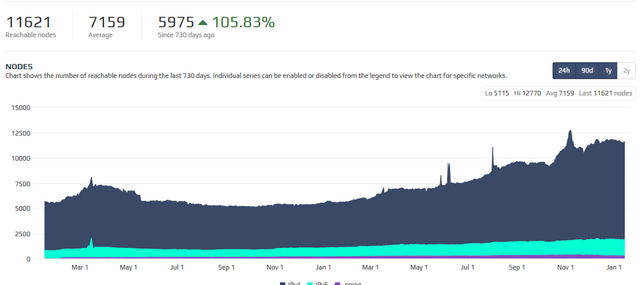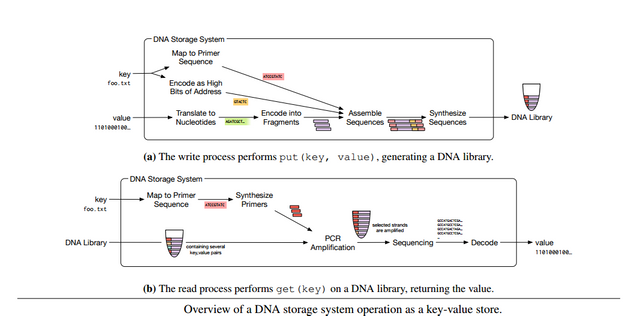Always in motion is the future: Blockchain, hologram and bacterium
At first glance it may be noted that there is inefficient using of resources of the data storage devices among the shortcomings of the blockchain. Indeed to ensure the reliability of the information stored in the blockchain each blockchain network node contains a complete copy of their database (ledger).
In addition the more nodes in the blockchain network, the more duplicated information in it and over time this situation is exacerbated by the constantly increasing number of nodes. Accordingly the quantity of information doubles is growing too.
The global network of Bitcoin mining nodes. Image source: accountexnetwork.com
Over the past two years, according to bitnodes.earn.com, the minimum number of nodes in the bitcoin network was 5 115, the maximum 12 770, the average 7 159. At the time of writing, the network had 11 621 nodes with a blockchain size of 159,75 GB. It is not difficult to calculate that the total size of the bitcoin network at this moment is 1 856 454,75GB = 1,86PB (petabyte).
Is this a lot or a little? According to some estimates, the YouTube uses approximately 400PB to store all of its video data.
In which relationship is it with holograms and bacteria, you ask?
Image Source: How Holograms Work
The hologram and blockchain have one thing in common. The entire system exists in every part of hologram, and it is also found in blockchain network, where even if half the blockchain nodes are destroyed, the whole system continues to exist as a whole in the other half of nodes. Thus, the principle of redundancy and duplication of information is not so bad - and the quantum world shows us this by the example of holography.
The same principle can be seen when storing information in the genome of biological organisms - each organism contains countless copies of DNA!
What is to be done now with the problem of an avalanche-like growing demand for storing huge amounts of data?
Bacteria will save the situation
In 2010, a group of researchers from the Chinese University of Hong Kong found a way to encrypt and store data in bacteria. Approximately 900 TB of information is stored in 1 g of live material. The project is called Bioencryption and it was created for the international competition iGEM-2010 (International Genetically Engineered Machine).
Encryption is performed by DNA shuffle method. The reading of information from bacteria is confirmed by a checksum.
More details about this technology you can read here and here.
What happens to this technology in our time?
According to wiki:
In March 2017, Dr. Yaniv Erlich and Dina Zielinski of Columbia University and the New York Genome Center published a method known as DNA Fountain which allows perfect retrieval of information from a density of 215 petabytes per gram of DNA.
About Microsoft's success in this interesting way of storing data you can see here:
Thus, it is precisely the achievements of technological progress that many seemingly insoluble problems of blockchain will solve!





I think your Post is for a big group of people very helpful!
Thx for making this Website for us!
Upvote when your in my opinion @alokkamboj
I really hope so! Thank you!
Congratulations @satoshinakamota! You received a personal award!
Click here to view your Board
Congratulations @satoshinakamota! You received a personal award!
You can view your badges on your Steem Board and compare to others on the Steem Ranking
Vote for @Steemitboard as a witness to get one more award and increased upvotes!